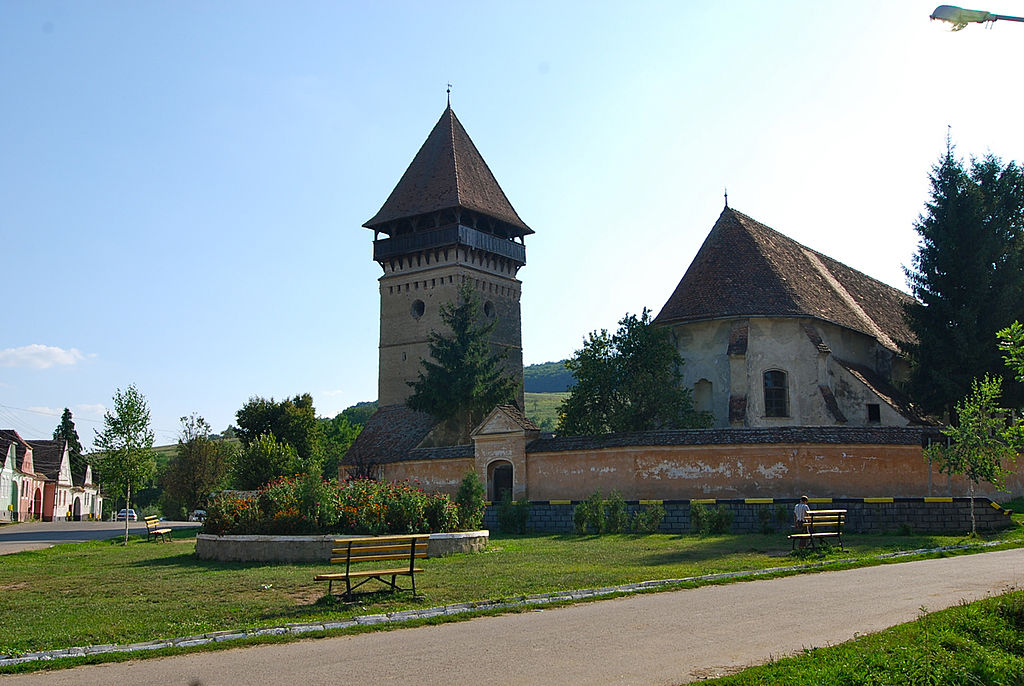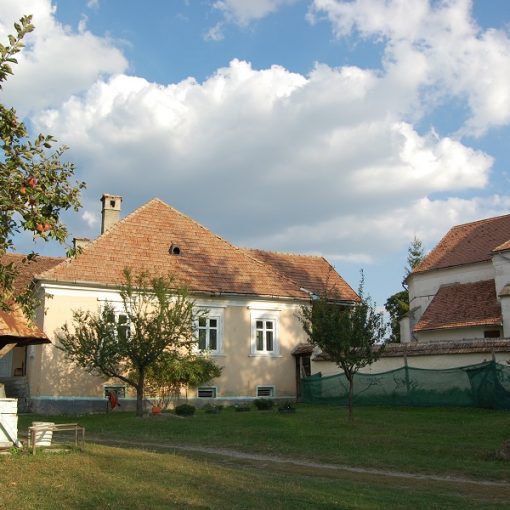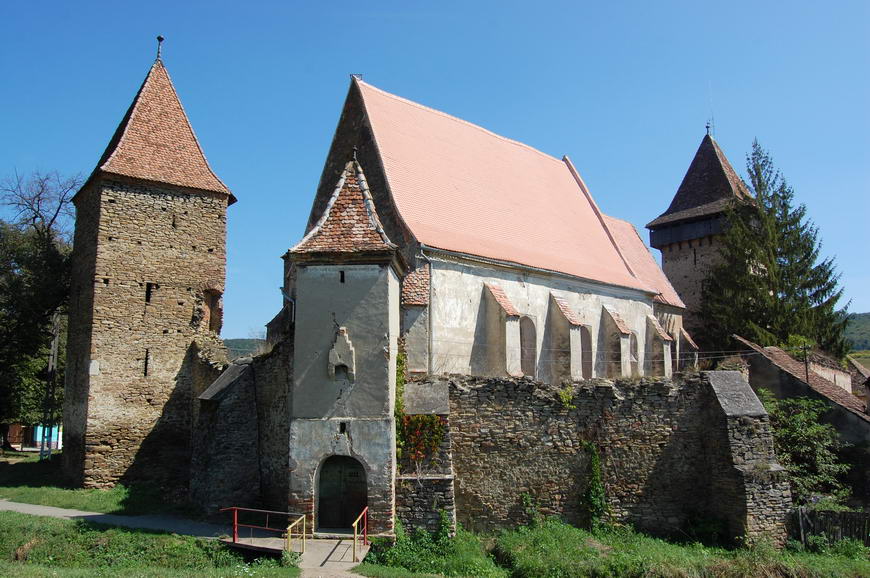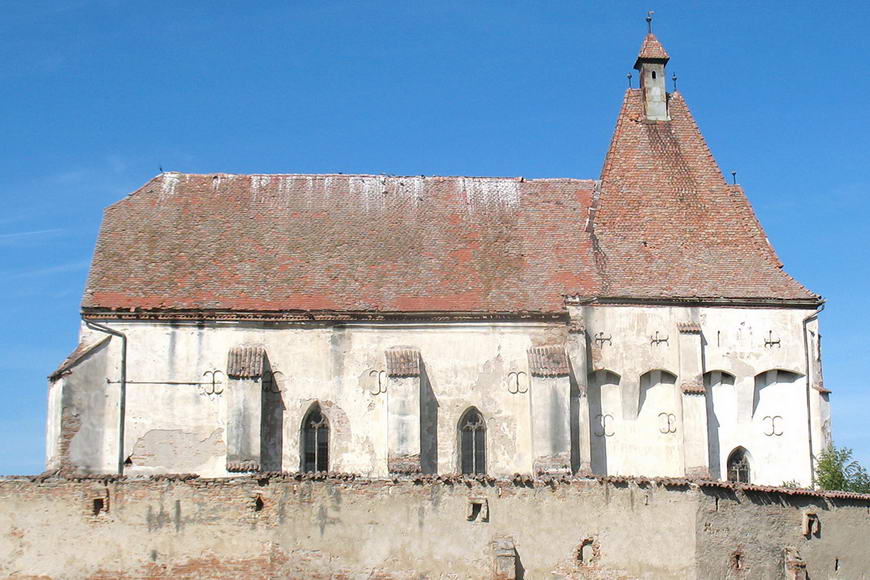
The church in Boian was erected around the year 1400, but it is difficult to determine which parts of the initial construction have been preserved to this day. Nevertheless, it is known that around 1500 the religious edifice was fortified, a defence level being built above the chancel. The fortification wall was designed to include a parapet walk, partly built on two levels and strengthened by a gate tower. The latter also served as a bell tower having its entrance protected by a portcullis (sliding wooden lattice reinforced with iron). Another detail that is worth mentioning is the decoration of the cornice with angled bricks, a method often used for the Orthodox churches in Moldavia and Muntenia regions.
Furthermore, on both gate tower and northern entrance of the church one can find the coat of arms of the Moldavian prince Stephan the Great, to whose fief Boian briefly belonged.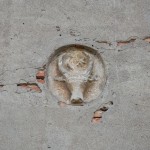
Place and surroundings
It is utterly uncommon to find the symbol of the ureox at the entrance to an Evangelic church. And yet, in Boian, on the Northern portal of the fortified church, one can see the symbol of Moldavia carved in the shape of the relief of two ureox heads. Unlike most of the Saxon villages, this place was not part of the Royal Land (a self-administered Saxon territory), but it was part of The County of Cetatea de Baltă (Moorland Fortress). The colonists on the Royal Land were loyal only to the Hungarian king and used to enjoy a special status and privileges, while the inhabitants of the counties, Hungarian admininistrative areas, were all serfs under the authority of the feudal lord.
In 1498, Matei Corvin, king of Hungary, offered The County of the Moorland Fortress as a gift to the Moldavian prince Stephan the Great. The prince supported the completion of the massive fortification around the sacred church, fact that is suggested by the presence of his coat of arms on the wall – the ureox head.
Contact:
District Consistory Mediaș
+40/269/843 228
+40/269/841 962

